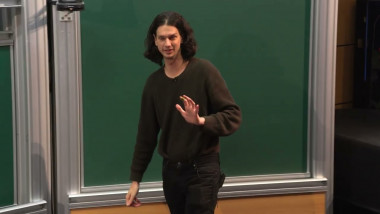Autonomous quantum thermal machines: How purely dissipative processes can be exploited to generate entanglement
Appears in collection : 2018 - T2 - WS2 - Quantum control and feedback: foundations and applications
Entanglement is a key phenomenon distinguishing quantum from classical physics, and is a paradigmatic resource enabling many applications of quantum information science. Generating and maintaining entanglement is therefore a central challenge. Decoherence caused by unavoidable interactions of a system with its environment generally degrades entanglement, and significant effort is invested in minimising the effect of such dissipation processes in experiments. However, dissipation can also be advantageous, and may in fact be exploited for generating entangled quantum states under the right conditions. This research direction has given rise to the development of reservoir engineering, but also to autonomous quantum thermal machines. In contrast to reservoir engineering, autonomous thermal machines only make use of purely dissipative processes. I will therefore start by reviewing some of the existing proposals of thermal machines that achieve entanglement generation in the stationary regime, using only incoherent couplings to thermal baths. Importantly, these machines have also generated interest among experimentalists and I will describe some ongoing experiments. However, one must be aware that these thermal machines do not allow the generation of entanglement strong enough to violate Bell-type inequalities, necessary for instance for device-independent quantum information processing. This limitation has motivated further research, leading to the recent proposition of a new type of thermal machine that achieves the generation of maximal entanglement in a heralded way, thanks to the use of local filters. I will detail the functioning of this novel type of thermal machine. Of particular interest, this machine can be generalized to arbitrary dimension, allowing not only the generation of arbitrary dimension singlet states, but also the generation of multipartite entangled states in the GHZ-class.
These novel quantum thermal machines are emblematic to illustrate how autonomous quantum thermal machines, running thanks to purely dissipative processes, outperform their classical counterparts. These examples illustrate the power of thermal machines to create genuinely quantum resources for quantum information processing.










